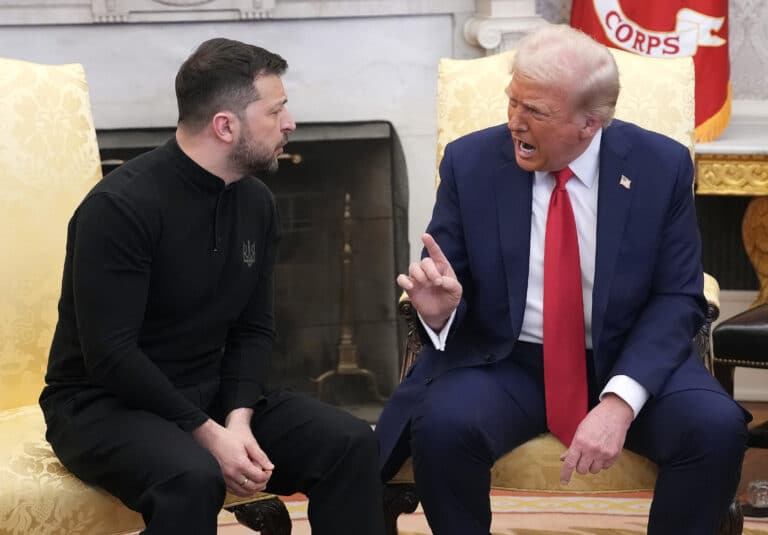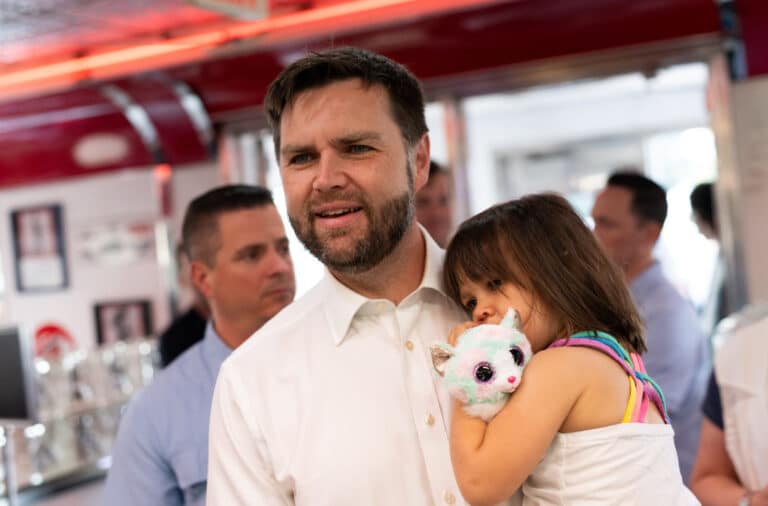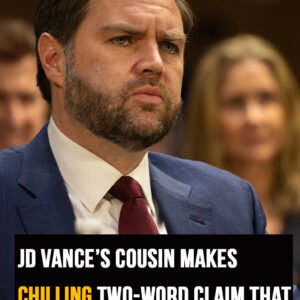Nate Vance, the cousin of US Vice President JD Vance, has publicly criticized both him and former President Donald Trump for what he perceives as their dismissive and condescending treatment of Ukrainian President Volodymyr Zelensky during a tense meeting in the Oval Office in February. In an interview with the BBC, Nate, who volunteered with the Ukrainian military for three years following Russia’s full-scale invasion, expressed his profound disappointment. He emphasized that political leaders should uphold a certain level of decorum, especially in significant diplomatic contexts, but felt that the conduct of Trump and JD Vance during the meeting was disrespectful and inappropriate. He admitted to feeling “not happy” about how the situation unfolded.
His comments follow earlier accusations in which he labeled both Trump and JD Vance as “useful idiots” for Russian President Vladimir Putin, a claim first reported by The Guardian. The February meeting, which was broadcast live, quickly escalated in tension. Trump made it clear that ongoing US support for Ukraine was contingent, cautioning Zelensky not to “gamble with World War Three” and insisting that a deal with Russia was necessary. Meanwhile, JD Vance criticized Zelensky for being disrespectful by airing concerns about US policy in front of the media and suggested that the Ukrainian president had not adequately expressed gratitude for the substantial aid provided by the United States.
Nate Vance strongly refuted that assertion, arguing that Zelensky consistently shows appreciation in his nightly addresses to the Ukrainian people. He acknowledged that while Zelensky may not have exhibited the level of deference that Trump and JD Vance anticipated, such expectations were unreasonable given the circumstances of the past three years. According to him, Trump and his cousin have been actively undermining Zelensky’s initiatives since the onset of the war, making it unrealistic to expect warm expressions of gratitude from the Ukrainian president.

The meeting ultimately descended into chaos, with tensions rising to the point where Zelensky was asked to leave the White House, leading to the abrupt cancellation of a planned news conference. In the aftermath, the Trump administration suspended military aid to Ukraine, including intelligence-sharing and access to satellite imagery, which ignited further controversy. This sudden policy shift raised concerns among foreign policy experts about the future of US-Ukrainian relations and its broader implications for global security.
Compounding the controversy, a reporter at the meeting criticized Zelensky for not wearing a suit. Since the onset of the war, the Ukrainian president has consistently donned military-style attire as a symbol of solidarity with his troops. Nate Vance dismissed this criticism as trivial, arguing that it distracted from more significant issues. He contended that Zelensky’s clothing choice was a meaningful and intentional statement, reflecting his dedication to his country and the soldiers fighting on the front lines. He also highlighted a glaring double standard, noting that Elon Musk has frequently visited the White House in casual attire, often in a T-shirt and baseball cap, without anyone questioning his professionalism or decorum.
In a separate interview with Le Figaro, Nate Vance described his cousin as intelligent but labeled the Oval Office meeting as “an ambush of absolute bad faith.” He acknowledged that his perspective might be somewhat unconventional given his lifelong Republican affiliation, but he stressed that his views on Ukraine were informed by his firsthand experiences. He believed that the US was approaching the situation in a counterproductive way. While recognizing that many Americans may not closely follow the war, he estimated that around 20% of the population would be disheartened by how US leadership treated Zelensky.

Nate Vance issued a serious warning regarding the risks associated with the rise of isolationism in US foreign policy. He highlighted historical examples, reminding everyone that the US’s isolationist approach in the early 20th century ultimately contributed to devastating global conflicts, such as World War One and World War Two. Vance expressed his worry that similar errors could occur if the US continues to withdraw from its international obligations, especially concerning Ukraine.
After a contentious meeting, Zelensky characterized the discussion as “regrettable” and urged for renewed efforts to mend relations between the two countries. Despite this diplomatic hurdle, US officials are still working to engage in negotiations with both Ukraine and Russia, hoping to reach a resolution to end the conflict. Meanwhile, Trump has asserted that he is making headway in talks with Russia but acknowledged that addressing the situation in Ukraine has proven to be more difficult. The diplomatic environment remains precarious, with heightened tensions and uncertainty surrounding the future of US support for Ukraine.
